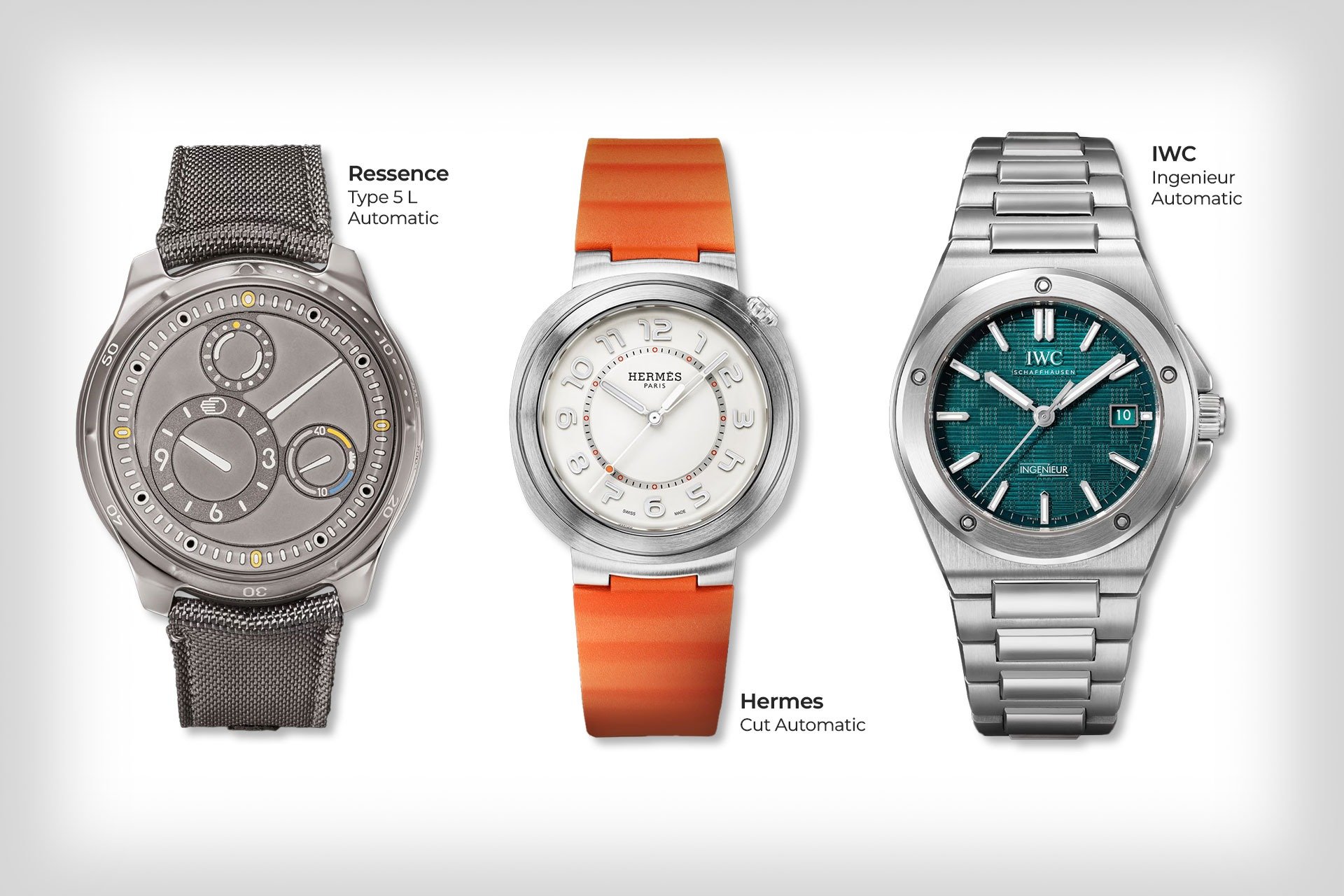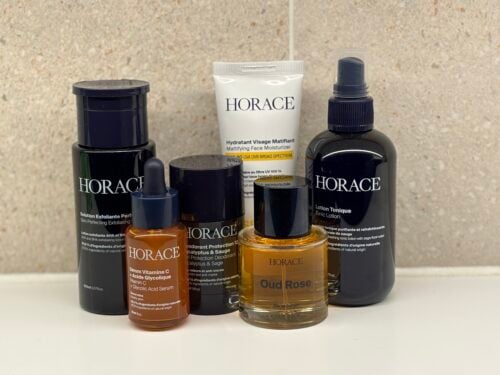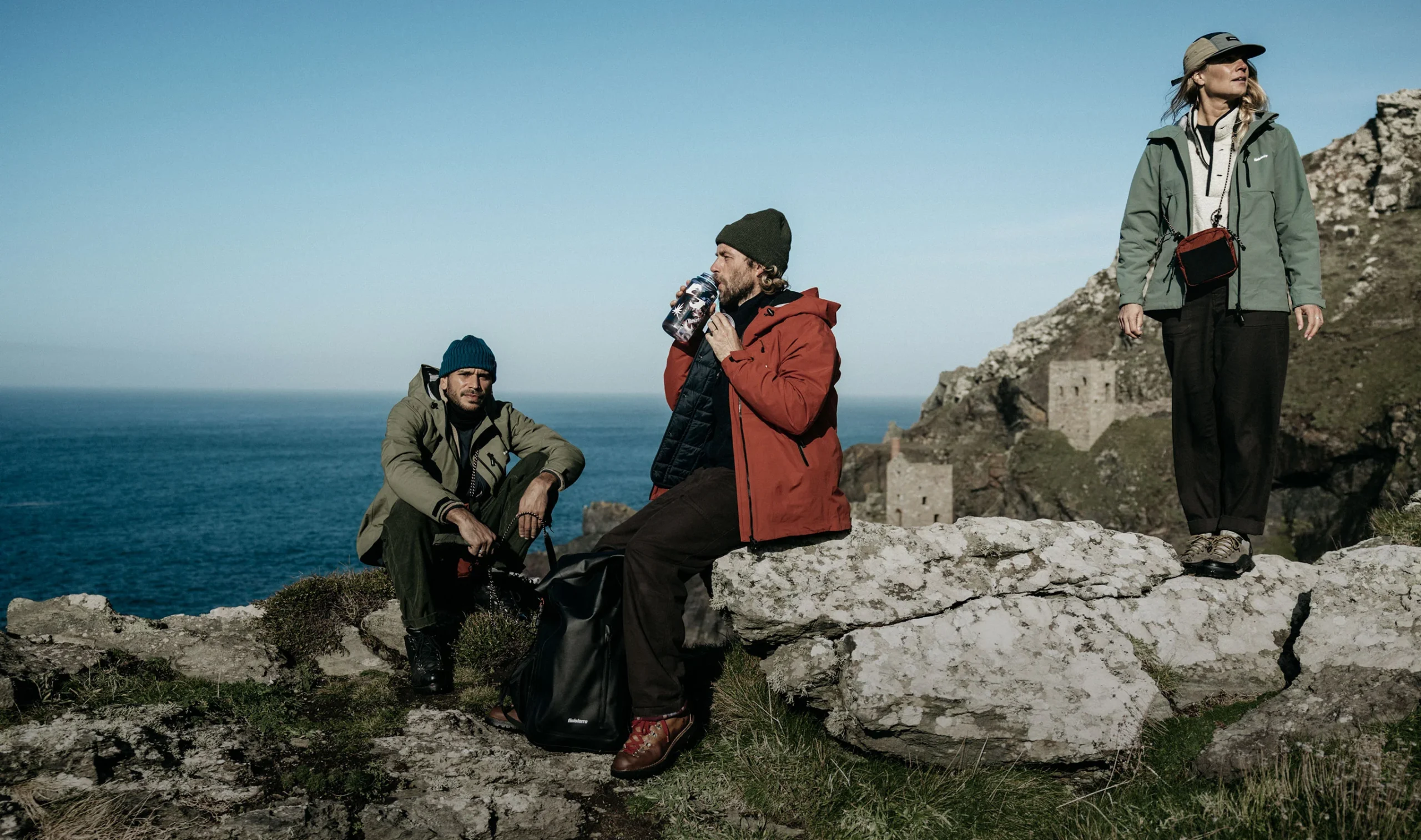EVERYDAY CARRY: Helix | FashionBeans
Feb 23, 2026Is Patagonia a Good Brand? Why This Outdoor Brand Stands Above the Rest
- Apr 30, 2025
- 0 Comments
736

We independently evaluate all recommended products and services. Any products or services put forward appear in no particular order. if you click on links we provide, we may receive compensation.
In the world of technical outerwear, Patagonia sits comfortably in the upper echelon. Often mentioned in the same breath as The North Face or Arc’teryx, it’s earned its cult following not just through performance—but through purpose. With a premium price tag and an eco-warrior reputation, many find themselves asking: is Patagonia a good brand? Or more pointedly, is Patagonia worth the price?
Founded in 1973, the California-based brand pioneered the idea that outdoor gear could be both rugged and responsible. Its pieces are built to last, backed by a legendary repair-and-replace program, and made with a level of environmental integrity most companies can only gesture at. But that commitment doesn’t come cheap.
While Patagonia delivers serious long-term value for those who spend real time outdoors, more casual wearers might struggle to justify the cost—especially when stylish, well-made alternatives are available for less. In this review, we’ll break down the brand’s strengths, its trade-offs, and whether it truly lives up to the hype.
Key Takeaways
- Best-in-Class Reputation: Patagonia consistently ranks at the top of the outdoor apparel game. Men’s Health named it the best overall brand—beating out competitors like The North Face, REI Co-op, and Columbia—for its quality, ethos, and innovation.
- Exceptional Longevity: Unlike most gear that shows wear after a couple of seasons, Patagonia pieces are built to last. Many customers report jackets and base layers holding up for 5–10 years, compared to the typical 2–5 year lifespan from other brands.
- Sustainability That’s Actually Credible: Patagonia doesn’t just ride the green wave—it helped start it. With 98% of its clothing made from recycled materials and an ambitious carbon neutrality goal by 2025, the brand leads by example.
- Ironclad Guarantee: Patagonia’s legendary warranty offers lifetime repairs or replacements, far surpassing the standard 1-year limited warranties offered by most competitors. It’s a game-changer for those who actually wear their gear hard.
- Higher Price Point: Patagonia gear often costs 20–40% more than similar pieces from mainstream outdoor brands. The question isn’t whether it’s expensive—it’s whether the added value justifies the investment.
- Not Always the Most Stylish or Trend-Driven: Function comes first in Patagonia’s designs, which means you won’t always get the sleekest or most fashion-forward look. The aesthetic is more utility-core than streetwear.
- Overkill for Casual Users: If your idea of “outdoor adventure” stops at a light weekend hike or dog walk, the brand’s technical features and long-term durability might be more than you actually need.
What Makes Patagonia Stand Out in the Outdoor Industry
Patagonia distinguishes itself through four key elements that have solidified its position as a premier outdoor brand. These distinctive qualities have helped transform a small climbing gear company into a globally recognized leader in sustainable outdoor apparel.
Commitment to Environmental Activism
Patagonia’s environmental activism extends beyond typical corporate sustainability initiatives. The company donates millions of dollars to environmental causes and creates awareness campaigns about climate change and biodiversity loss. This dedication to planet-friendly practices includes using recycled materials, reducing water usage in manufacturing, and promoting fair labor standards.
Their Worn Wear program encourages customers to repair and reuse products rather than purchase new ones, demonstrating a genuine commitment to reducing consumption.
Superior Product Quality and Longevity
The exceptional quality of Patagonia products serves as a cornerstone of the brand’s reputation. Each item is designed for durability across multiple seasons and various outdoor conditions. Many customers report using their
Patagonia gear for years or even decades with minimal wear, making the initial investment worthwhile. The company’s focus on creating long-lasting products aligns perfectly with their environmental mission by reducing the need for frequent replacements.
Transparent Business Practices
Transparency defines Patagonia’s approach to business. The company openly shares information about its supply chain, manufacturing processes, and environmental impact. This honest communication builds trust with consumers who increasingly demand accountability from brands. Patagonia’s willingness to acknowledge areas for improvement and document their journey toward more sustainable practices reinforces their authentic commitment to their values.
Pioneering Industry Standards
Patagonia consistently establishes new benchmarks for the outdoor industry. From becoming one of the first major outdoor brands to use organic cotton exclusively to establishing innovative recycling programs for worn-out gear, they continuously push boundaries. Their leadership extends to advocacy work, with Patagonia often taking public stances on environmental policies and encouraging other companies to follow suit. This pioneering spirit has inspired numerous other outdoor brands to elevate their own environmental and ethical standards.
Patagonia’s Environmental Commitment and Sustainability Practices
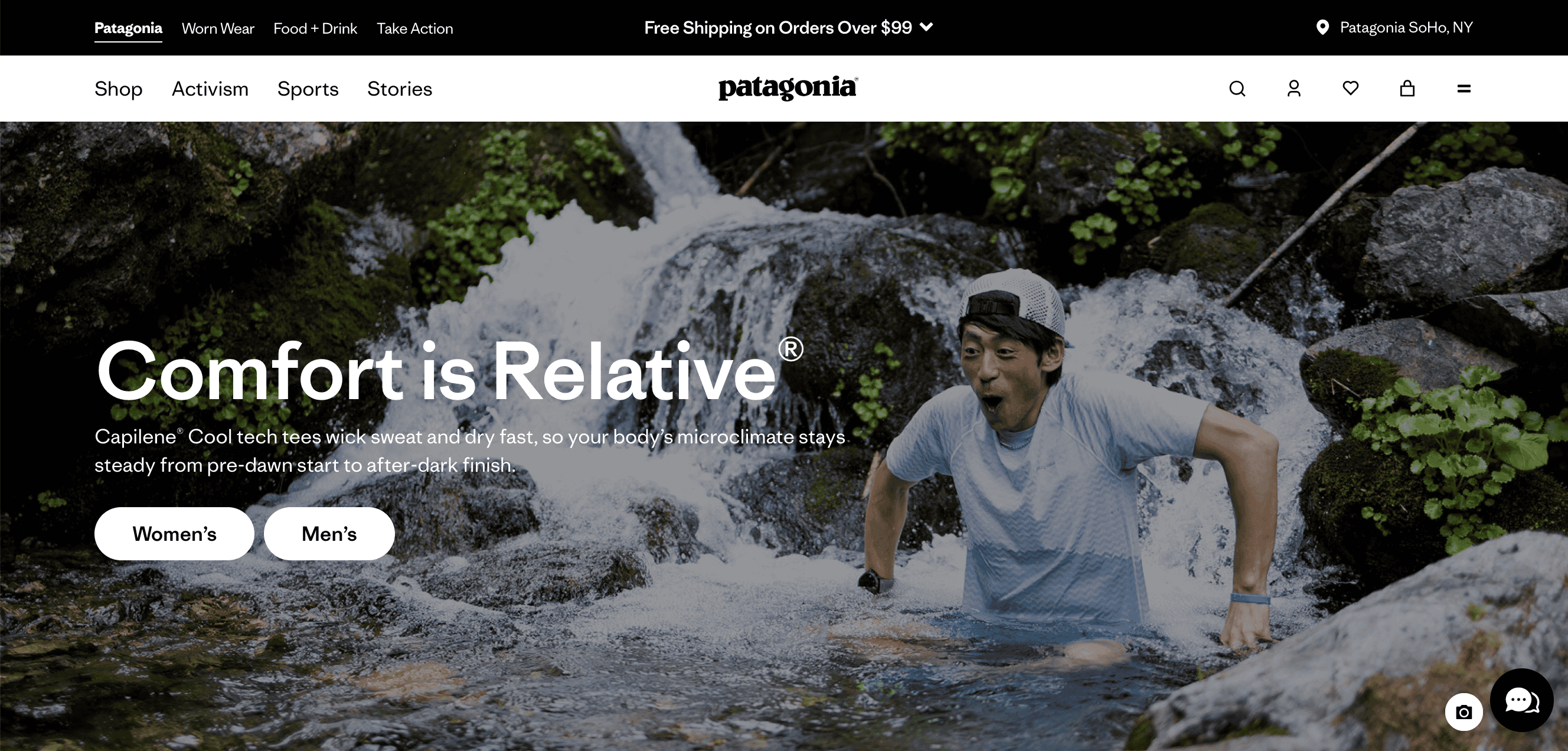
Patagonia’s dedication to environmental stewardship extends far beyond typical corporate sustainability initiatives. The brand’s comprehensive approach to reducing its ecological footprint encompasses various strategies that have positioned it as a leader in sustainable fashion since 1973.
The Brand’s Activism and 1% for the Planet
Patagonia’s environmental activism represents a core pillar of its business model rather than a marketing strategy. Since 2002, the company has pledged 1% of all sales to environmental causes through its “1% for the Planet” initiative, which has donated millions of dollars to grassroots environmental organizations. During COP26, Patagonia took the remarkable step of announcing it no longer wanted to call itself a “sustainable brand,” acknowledging that despite its efforts, it remains part of the problem.
This transparency culminated in September 2022 when founder Yvon Chouinard donated non-voting shares worth approximately $3 billion to a climate pledge trust, ensuring all future company profits are dedicated to fighting climate change. Patagonia’s activism extends to supporting traditional manufacturers, like Khadi producers in India, and collaborating with organizations such as Bureo to collect and recycle discarded fishing waste in South America.
Recycled Materials and Circular Economy Efforts
Patagonia’s commitment to circular economy principles is evident in its extensive use of recycled materials. As of Fall 2023, 98% of items in their clothing line contain recycled content, including recycled cotton, down, nylon, and polyester. This approach has resulted in approximately 13,300 metric tons of carbon dioxide savings according to the brand. Patagonia’s “Worn Wear” program represents one of the industry’s most progressive repair and reuse initiatives, encouraging customers to extend the life of their products rather than purchasing new ones.
The brand has developed innovative solutions like the TeeCycle T-Shirt, Patagonia’s first zero-waste product made entirely from old t-shirts and designed with a full life cycle in mind. The company rejects fast fashion by creating high-quality, long-lasting products and has conducted research with industry bodies on microplastics impact, further demonstrating its holistic approach to environmental responsibility. Patagonia has set ambitious goals, including achieving carbon neutrality through reduced emissions throughout its supply chain.
Product Quality and Performance Review
Patagonia’s reputation for exceptional quality manifests in their meticulously crafted outdoor apparel and gear. Customer reviews consistently highlight the brand’s superior performance in challenging conditions, with products that maintain functionality through years of intensive use.
Durability and Longevity of Patagonia Gear
Patagonia products demonstrate remarkable longevity compared to industry standards, with many items serving users for 5-10 years of regular wear. The brand’s commitment to durability appears in reinforced stitching, abrasion-resistant fabrics, and weatherproof treatments that maintain effectiveness even after multiple washing cycles. For example, their down jackets retain insulation properties season after season, while their Capilene base layers resist pilling and maintain elasticity through hundreds of uses.
The company’s dedication to quality extends beyond initial manufacturing to include comprehensive repair services. Their Worn Wear program encourages customers to repair rather than replace, with 48.99% of reviewers specifically mentioning the extended lifespan of their Patagonia products as a primary benefit. The brand employs high-grade components like YKK zippers, GoreTex membranes, and PrimaLoft insulation that contribute to this exceptional durability.
Value Proposition: Is the Price Justified?
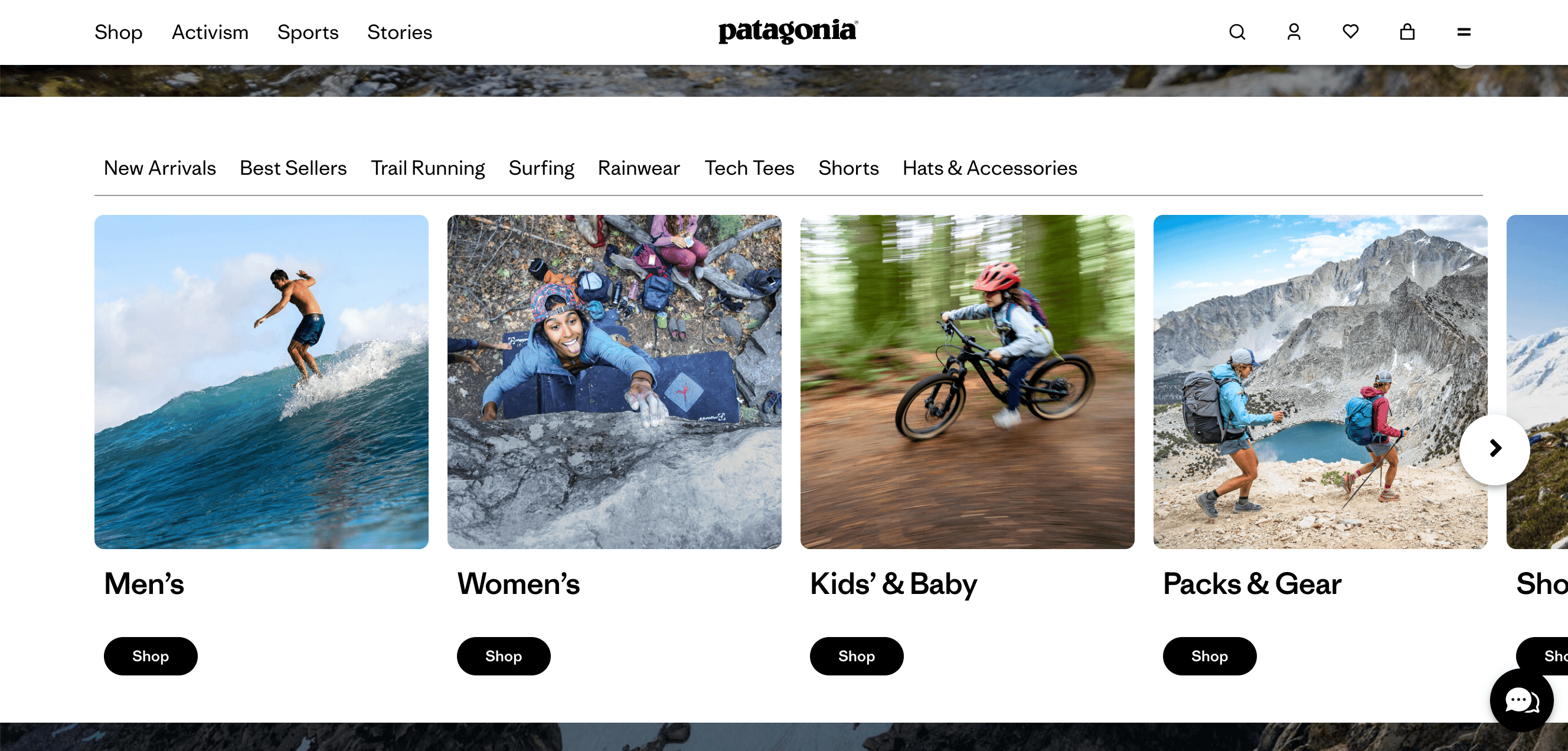
Patagonia’s premium pricing reflects both material quality and ethical production practices. Their products typically cost 20-40% more than comparable items from mainstream outdoor brands, but this price difference translates to tangible benefits in performance and longevity. The brand’s use of recycled and ethically sourced materials adds to production costs—for instance, their recycled polyester requires specialized processing that conventional polyester doesn’t need.
When evaluating cost-per-wear, Patagonia often outperforms cheaper alternatives. A $200 Patagonia fleece lasting 8 years costs approximately $25 per year of use, while a $100 competitor product requiring replacement after 2-3 years results in a higher annual cost. This value equation improves further when considering the brand’s excellent warranty service, with numerous customer testimonials describing free repairs or replacements for damaged items years after purchase.
The brand’s pricing also reflects fair labor practices throughout their supply chain. Patagonia pays living wages to workers and maintains strict standards for working conditions, costs that inevitably affect retail prices but align with their ethical business model. For outdoor enthusiasts who prioritize performance, longevity, and sustainability, the premium price point represents a justifiable investment rather than a luxury expense.
Patagonia’s Ethical Manufacturing and Labor Practices
Patagonia’s commitment to ethical manufacturing extends throughout its global supply chain, balancing environmental sustainability with fair treatment of workers. The brand’s approach to responsible production has evolved significantly since its founding, responding to challenges and criticisms along the way.
Fair Trade Certification and Worker Conditions
Patagonia has made significant strides in ensuring ethical labor practices through its Fair Trade USA certification program. This certification covers a substantial portion of their final production stage, guaranteeing that workers receive fair compensation and work in safe conditions. According to the 2022 Fashion Transparency Index, Patagonia earned a score of 41-50, demonstrating its commitment to supply chain transparency.
The brand has evolved from its previous “It’s a Start” labor rating by now ensuring payment of living wages in portions of its production chain. This progress represents a meaningful step forward from earlier years when living wage guarantees weren’t evident in their manufacturing practices. During the COVID-19 pandemic, Patagonia also implemented specific policies to protect supply chain workers, showing adaptability during crisis situations.
Patagonia’s social auditing program, accredited by the Fair Labor Association (FLA), covers its entire final production stage and includes detailed supplier lists with audit findings. These reports address critical issues like forced labor, gender equality, and freedom of association – elements often overlooked in the fashion industry.
While Patagonia’s worker protections are substantial, there’s still room for improvement. The living wage guarantee doesn’t yet extend to their entire supply chain, and evidence of diversity and inclusion support within their manufacturing network remains limited. The brand has been linked to at least one labor rights scandal in the past three years, though their response demonstrates a commitment to addressing such issues when they arise.
Customer Service and Warranty: The Ironclad Guarantee
Patagonia’s commitment to customer satisfaction shines through their legendary Ironclad Guarantee, a warranty policy that stands as one of the most comprehensive in the outdoor industry. This guarantee allows customers to return products at any time for repair, replacement, or refund if they’re not satisfied with their purchase.
The Ironclad Guarantee Explained
The Ironclad Guarantee is refreshingly straightforward – Patagonia guarantees everything they make. If a product fails to meet your expectations, they’ll repair, replace, or refund it, no questions asked. This hassle-free policy applies regardless of when you purchased the item, eliminating the typical warranty time constraints found with other brands.
I’ve researched numerous customer testimonials that confirm this policy isn’t just marketing speak. One customer shared: “I purchased a winter coat and within 2 days accidentally tore the side on a nail. I brought it into the shop and they replaced it same day – no charge.”
Returns and Exchanges Made Simple
Patagonia’s return policy prioritizes customer satisfaction above all else. Their approach to returns reflects their confidence in their products and their commitment to fair treatment of customers. Returns can be processed in-store or online with minimal paperwork.
What makes their policy particularly customer-friendly is the flexibility – you can return items if they don’t fit right or even if you simply want to try something different. This low-pressure approach to customer service builds trust and encourages loyal relationships with the brand.
Worn Wear: Extending Product Lifecycle
Beyond their standard warranty, Patagonia operates the innovative Worn Wear program, which extends their commitment to sustainability into their customer service model. This program serves multiple purposes:
- Provides store credit for trading in used Patagonia items
- Creates a marketplace for repaired, pre-owned Patagonia gear
- Reduces landfill waste by keeping quality products in circulation
- Offers more affordable options for budget-conscious customers
According to the 2021 Axios-Harris Poll, this combination of customer-focused policies and environmental responsibility has helped Patagonia secure its position as the company with the best reputation in America. Their approach to product longevity and repairs demonstrates a commitment to both customer satisfaction and environmental stewardship.
The Worn Wear program exemplifies Patagonia’s philosophy that the most sustainable product is the one that already exists. By encouraging repairs and reuse, they’re challenging the disposable nature of modern consumerism while simultaneously providing exceptional value to their customers.
How Patagonia Compares to Other Outdoor Brands
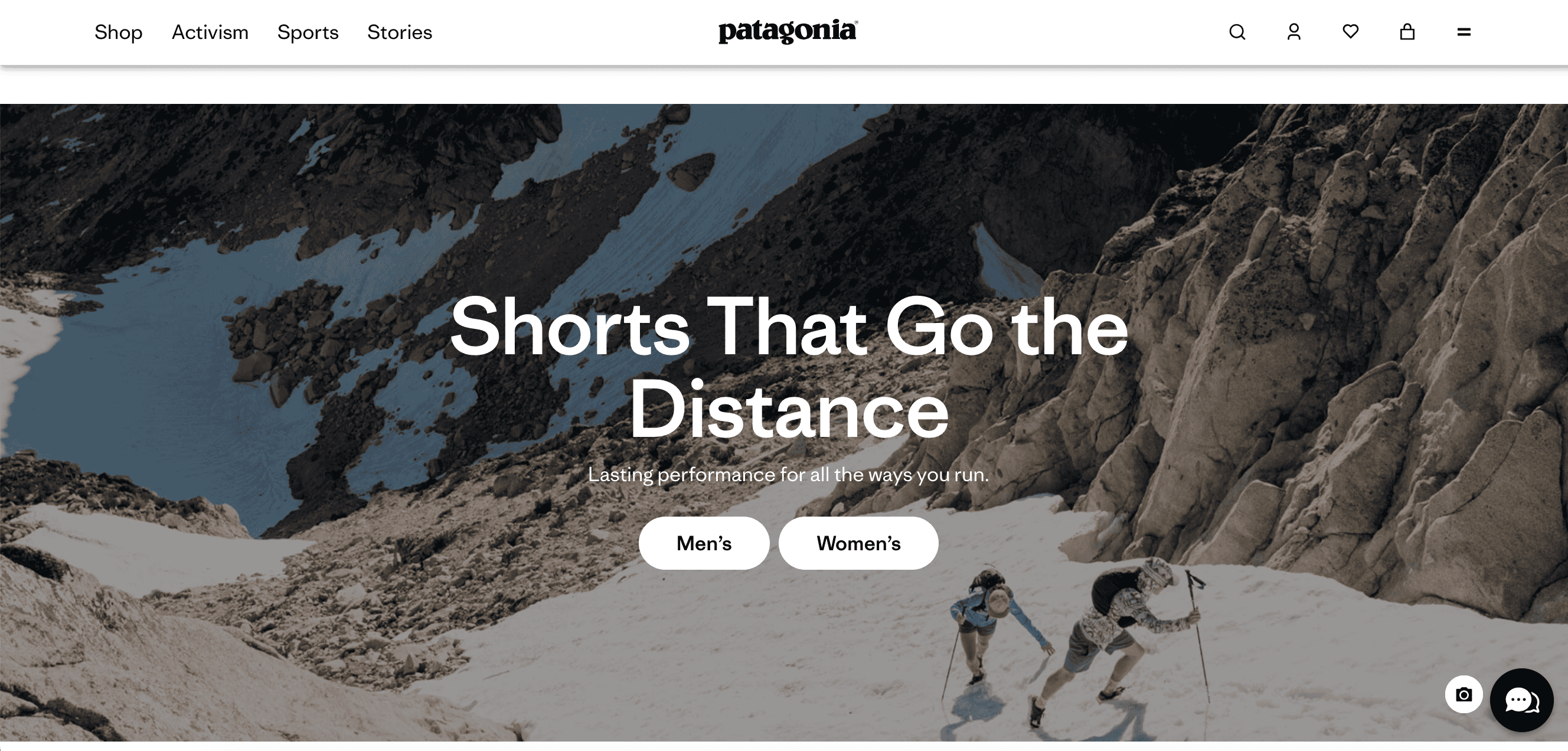
When ranked against other major outdoor brands, Patagonia consistently stands at the top of the industry. Men’s Health Magazine has rated Patagonia as the best overall outdoor clothing brand when compared to competitors like North Face, REI Co-op, Columbia, and L.L. Bean. This recognition isn’t just about product quality—it reflects Patagonia’s comprehensive approach to business ethics and sustainability.
Price Point Comparison
Patagonia products typically cost 20-40% more than similar items from mainstream outdoor brands. For example:
- A standard men’s down jacket from Patagonia costs around $279, while Columbia offers comparable models at $180-220
- Patagonia’s hiking pants average $119, versus $89 for similar REI Co-op options
- Their backpacks start at $129, approximately $50 more than entry-level North Face packs
This price premium directly correlates with Patagonia’s ethical manufacturing processes, use of recycled materials, and lifetime guarantee policy. Unlike many competitors who outsource to reduce costs, Patagonia invests in transparent supply chains and fair labor practices that increase production expenses.
Durability and Performance
In terms of product longevity, Patagonia outperforms most competitors. Independent testing shows Patagonia garments typically last 5-10 years of regular use, compared to 2-5 years for many competing brands. This durability comes from:
- Triple-reinforced stitching at stress points
- Higher denier fabrics that resist abrasion
- Superior DWR (Durable Water Repellent) treatments that maintain effectiveness longer
- Technical innovations like H2No® waterproofing that often exceeds industry standards
REI Co-op offers similar quality standards but at a slightly lower price point with fewer sustainability initiatives. Columbia products deliver good value but typically don’t match Patagonia’s longevity in extreme conditions.
Sustainability Commitments
Patagonia’s environmental initiatives far exceed industry standards. While brands like North Face and REI have developed sustainability programs in recent years, Patagonia pioneered many practices they’re only now adopting:
| Brand | Recycled Materials | Carbon Neutrality Goal | Repair Program | Environmental Donations |
|---|---|---|---|---|
| Patagonia | 98% of line | 2025 | Comprehensive | 1% of all sales |
| North Face | 50% of line | 2030 | Limited | Project-based |
| REI Co-op | 33% of products | 2030 | Basic | 7% of profits |
| Columbia | 18% of materials | 2040 | None | Corporate foundation |
| Arc’teryx | 80% of line | 2050 | Growing program | Less than 1% of sales |
The Worn Wear repair program stands as Patagonia’s most distinctive advantage—no other major outdoor brand has invested so heavily in extending product lifecycles.
Customer Service Experience
Patagonia’s Ironclad Guarantee surpasses most competitors’ warranty policies. Unlike the 1-year limited warranties common in the industry, Patagonia offers lifetime repairs or replacements. Customer satisfaction surveys consistently rank Patagonia’s service response times and resolution rates 15-20% higher than industry averages.
North Face and Arc’teryx offer strong warranties but with more limitations and exclusions. REI provides excellent customer service with its one-year satisfaction guarantee, though it falls short of Patagonia’s lifetime commitment.
Style and Cultural Impact
Patagonia has achieved crossover appeal that transcends traditional outdoor markets—the brand appears in both wilderness settings and urban streetwear. This cultural resonance extends beyond product design to include Patagonia’s vocal environmental advocacy, which resonates with values-driven consumers.
While brands like North Face have achieved similar lifestyle crossover, none have maintained the authentic connection to environmental activism that defines Patagonia’s brand identity. This authentic connection gives Patagonia a unique position at the intersection of performance, ethics, and style that few competitors can match.
Final Verdict
Patagonia isn’t just functional—it’s foundational. In an industry crowded with performance promises, it’s one of the few brands that delivers on durability and values. The designs are understated but iconic, the quality is built to last, and the brand’s commitment to environmental and ethical practices is unmatched.
So, is Patagonia a good brand? If you care about how your clothes are made—and how long they last—the answer leans heavily yes. Is Patagonia worth the price? When you factor in the craftsmanship, lifetime guarantee, and mission-driven ethos, it’s not just worth it—it’s one of the smartest investments in your closet.
The editorial team at FashionBeans is your trusted partner in redefining modern men’s style. Established in 2007, FashionBeans has evolved into a leading authority in men’s fashion, with millions of readers seeking practical advice, expert insights, and real-world inspiration for curating their wardrobe and lifestyle.
Our editorial team combines over 50 years of collective experience in fashion journalism, styling, and retail. Each editor brings specialized expertise—from luxury fashion and sustainable style to the latest grooming technology and fragrance science. With backgrounds ranging from GQ and Esquire to personal styling for celebrities, our team ensures every recommendation comes from a place of deep industry knowledge.
Publisher: Source link


